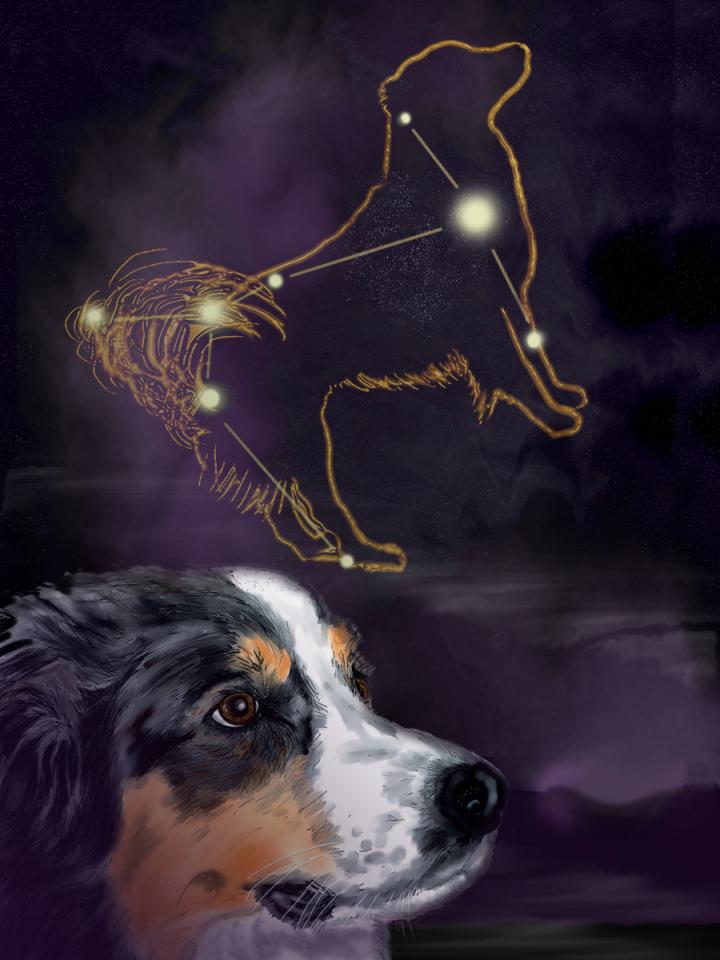This Month @Storyteller, is the month of the dog days of summer.
August is the eighth month of the year in the Julian and Gregorian calendars, and the fifth of seven months to have a length of 31 days.
Its zodiac sign is Leo and was originally named Sextilis in Latin because it was the 6th month in the original ten-month Roman calendar under Romulus in 753 BC, with March being the first month of the year. About 700 BC, it became the eighth month when January and February were added to the year before March by King Numa Pompilius, who also gave it 29 days. Julius Caesar added two days when he created the Julian calendar in 46 BC (708 AUC), giving it its modern length of 31 days. In 8 BC, it was renamed in honor of Emperor Augustus.
In the Southern Hemisphere, August is the seasonal equivalent of February in the Northern Hemisphere. In the Northern Hemisphere, August falls in the season of summer. In the Southern Hemisphere, the month falls during the season of winter. In many European countries, August is the holiday month for most workers. Numerous religious holidays occurred during August in ancient Rome.
 |
| “Backyard Dog Show” by Amos Sewell, from the July 8, 1950, cover of the Post. |
August is also called the "Dog Days of Summer". Why is it called that?
The term “Dog Days” traditionally refers to a period of particularly hot and humid weather occurring during the summer months of July and August in the Northern Hemisphere.
In ancient Greece and Rome, the Dog Days were believed to be a time of drought, bad luck, and unrest, when dogs and men alike would be driven mad by the extreme heat! Today, the phrase doesn’t conjure up such bad imagery. Instead, the Dog Days are associated purely with the time of summer’s peak temperatures and humidity.
The Ancient Romans thought that Sirius contributed to the heat of the sun. Since Sirius was most prominent in the night sky during July and into early August, those became the dog days of summer.
One single star called Sirius. Sirius is known as the dog star and rises about this time of year above the horizon in the northern hemisphere. Dog days of summer refer to the arrival of Sirius. Sirius is part of the constellation Canis Majoris—the “Greater Dog”—which is where Sirius gets its canine nickname, as well as its official name, Alpha Canis Majoris. Not including our own Sun, Sirius is the brightest star in the sky.
The phrase “dog days,” was translated from Latin to English about 500 years ago and has since taken on multiple meanings in different countries, including the one with which we are most familiar.
In the Southern United States (particularly Virginia), it is believed that Dog Days is a bad time to enjoy the pleasure of going into the creeks, rivers, or beaches. Their version of Dog Days is when the water sits still, and if you get in it, you'll be sick as a dog.
Through the first Monday of August, the Canadians celebrate Civic Holiday, a holiday where all Canadians celebrate their cultural heritage. In other Canadian provinces, the holiday is known by a variety of names, including British Columbia Day in British Columbia, New Brunswick Day in New Brunswick, and Saskatchewan Day in Saskatchewan; all of these places celebrate the date as a provincial statutory holiday. 🇨🇦🍁🦫
Also, in the first Monday of August, Australians in the Northwest Territories celebrate Picnic Day. 🐊🍔
In August 19, in the U.S. state of Hawaii, Hawaiians celebrate Hawaii Statehood Day. It is celebrated annually on the third Friday in August to commemorate the anniversary of the state's 1959 admission to the Union.
“Dog Days are approaching; you must, therefore, make both hay and haste while the Sun shines, for when old Sirius takes command of the weather, he is such an unsteady, crazy dog, there is no dependence upon him.”
–The Old Farmer’s Almanac, 1817
Well, fall will be approaching soon before ya know it, have a great summer, y'all!



Comments